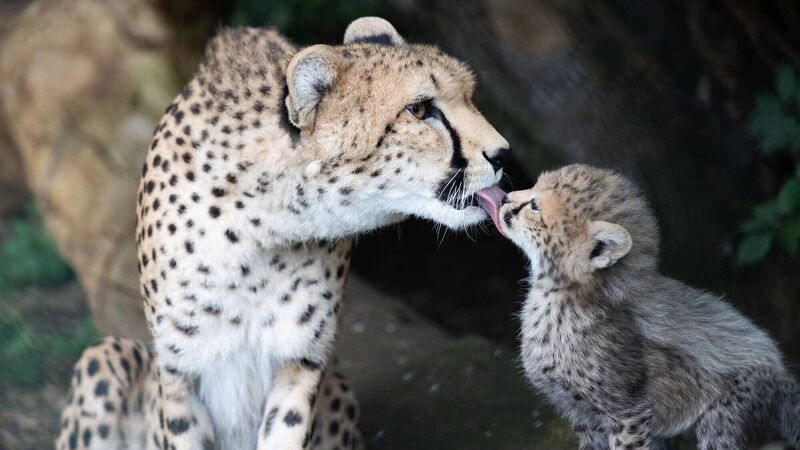Fota Wildlife Park upgraded sea wall which was damaged due to effects of climate change

Fota Wildlife Park upgraded its sea wall in recent months as increased sea levels, caused by the climate crisis, had damaged the initial structure and resulted in flooding of the park, inside the wall, during storms. Image credits: Darragh Kane
Fota Wildlife Park upgraded its sea wall in recent months as increased sea levels, caused by the climate crisis, had damaged the initial structure and resulted in flooding of the park, inside the wall, during storms.
Park Director Sean McKeown said the emergency works that were done over the past year, were needed as a direct result of Global Warming and increased sea levels.
The sea wall was one of three projects at the park that received financial assistance from the Government with a total contribution of €1m from the State to carry out the works.
Mr McKeown said: “We started to have issues with the sea wall where we were getting sea water going over the wall and damaging the wall itself, so that was a priority.
“When we investigated the sea wall it was sitting on loose gravel so it could go anywhere and the actual parts of it were compromised as well, with water coming in and out of it and also water coming up over it at high tides.” The sea wall is in front of an embankment that had been put in in 1975 when the sea wall burst then, before Fota Wildlife Park existed.

“They managed to repair it then but nothing has been done to it since. It's gradually gotten worse in recent years, particularly with climate change, sea level rising, a considerable amount of water coming over. It was emergency work that needed to be done. We were lucky to have gotten that finished.”
Mr McKeown outlined the extent of the repair and remedial works on the sea wall.
The Park Director said the establishment, which is home to 1,400 individual animals and 150 species, is very aware of climate change.
“We have plans for the future, in 2023 when we are 40 years in existence, we have plans to develop a new education, research and conservation building. Currently we have over 9,000 students coming on day courses about ecology, conservation and sustainability and this new centre will encapsulate the core reason we are here, to understand why we need to save the planet, stop climate change and the measures we can take to change our behaviour, it is not proven that zoos and wildlife parks are important in changing people's behaviour.
“We are not stopping, there is continuous development.”







 App?
App?


